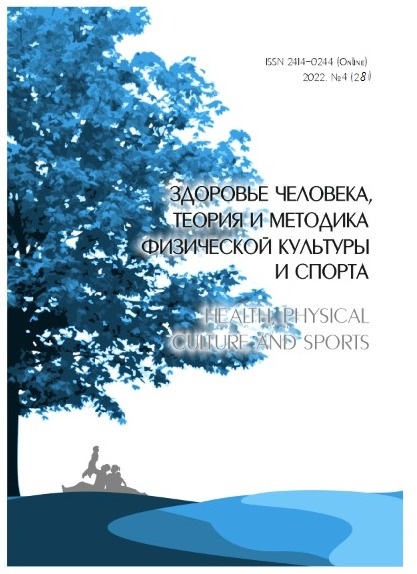TAKING A PATIENT HISTORY IN THE CONTEXT OF FOREIGN LANGUAGE TRAINING AT MEDICAL UNIVERSITIES
Abstract
Annotation. Objectives: to propose an open for editing and supplementing, bilingual (English/Bulgarian) history-taking model, serving foreign language training at medical universities; to outline the principles of taking a patient history; to form students’ English/Bulgarian terminological conceptual apparatus in the context of history taking. Materials and research methods. The information obtained during consultations with medical specialists and extracted from specialized theoretical studies on the topic under consideration has been used to implement a model for taking a patient history. Methods of definition analysis and component analysis have been applied. Discussion and results of the study. Three of the recent theories of terminology are discussed: The Communicative Theory of Terminology, Sociocognitive Terminology and Frame-Based Terminology. Composing the open bilingual history-taking model is put in the limelight. English/Bulgarian interrogative structures are specified and systematized in three stages: Anamnesis morbi, Anamnesis vitae, Anamnesis familiae. The basic principles of taking a detailed patient history are considered. Conclusions. The following conclusions have been made: 1. The history-taking model complies to the structural features and lexical and terminological conceptual apparatus in English and Bulgarian. 2. The model facilitates specialized knowledge teaching and acquisition and brings added value to its upgrading. 3. The model implies the formulation of a proper diagnostic hypothesis and treatment of the disease. 4. The main principles of history taking are as follows: A. Listening to the patient and asking clarifying questions regarding his medical condition; B. Patient observation; C. Integration of the information obtained
Downloads
References
Cabré, M. T. Elements for theory of terminology: Towards an alternative paradigm. Terminology. 6 (1): 2000. pp.35-57.
Cabré, M. T. Consecuencias metodológicas de la propuesta teórica (I). In La terminología científico-técnica: reconocimiento, análisis y extracción de información formal y semántica (DGES PB96-0293). Barcelona: Institut Universitari de Lingüística Aplicada. Universitat Pompeu Fabra, 2001. pp.27-36.
Cabré, M. T. Theories of terminology: their description, prescription and explanation. Terminology. 9 (2): 2003. pp.163-199.
Faber, P., Márquez Linares, C. & Vega Exposito. Framing terminology: a process-oriented approach. M: META 50 (4): CD-ROM, 2005.
Faber, P., et al. Process-oriented terminology management in the domain of coastal engineering. Terminology 12 (2). M: 2006. pp.189-213.
Faber, P., et al. Linking images and words: the description of specialized concepts. International Journal of Lexicography 20: 2007. pp.39-65.
Picht, H. Introduction to Terminology Theory. 2009. http://www.termnet.org/downloads/english/events/tss2009/TSS2009_HP-IntroductiontoTerminologyTheory.pdf
Temmerman, R. Questioning the univocity ideal. The difference between Sociocognitive Terminology and traditional Terminology. Hermes. Journal of Linguistics. (18): 1997. pp.51-91.
Temmerman, R. Towards New Ways of Terminology Description. The sociocognitive approach. Amsterdam/Philadelphia: John Benjamins. 2000.
Temmerman, R., Kerremans, K. & Vandervoort, V. La termontographie en contexte(s). Actes des Septièmes Journées Scientifiques du Réseau Lexicologie, Terminologie, Traduction, Brussels, Belgium. 2005.
An author should not normally publish manuscripts describing essentially the same research in multiple journals or publication venues. Such redundant publication is generally considered to constitute unethical publishing behavior, and if discovered may result in a manuscript under consideration being rejected, or a published article being retracted.
Authors of manuscripts reporting on original research should present an accurate account of the work performed, accompanied by an objective discussion of its significance. Underlying data should be represented accurately in the manuscript. The manuscript should contain sufficient detail and references to permit others to replicate the work. The fabrication of results and the making of fraudulent or knowingly inaccurate statements constitute unethical behavior and may be cause for rejection or retraction of a manuscript or published article.





